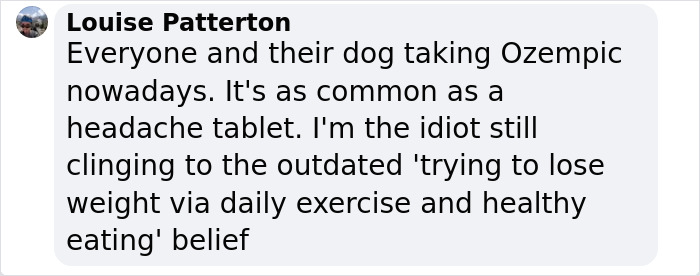Elon Musk uses the weight-loss drug Mounjaro, he newly revealed, as he jokingly referred to himself as “Ozempic Santa” in a Santa suit. Taking to the social media platform he owns, X (formerly known as Twitter), on Thursday (December 26), the richest man in the world shared a snap of himself dressed in a Santa costume.
In the photograph, which has amassed nearly 15 million views, Elon struck a confident pose in a classic red-and-white Santa suit, complete with a flowing white beard.
He could be seen standing against the backdrop of a lavishly decorated Christmas tree adorned with gold ribbons, ornaments, and glowing lights.
Elon Musk uses the weight-loss drug Mounjaro
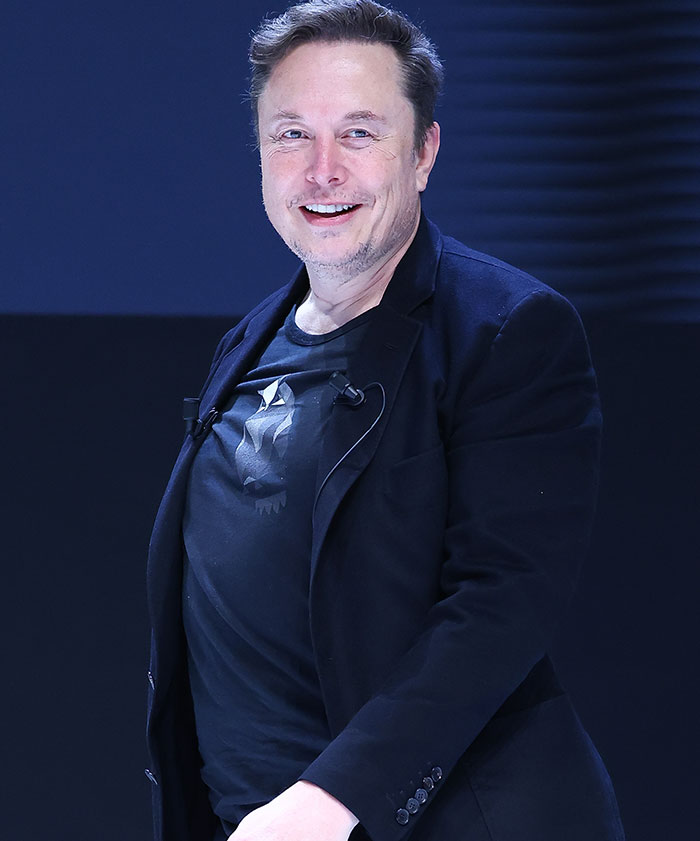
The festive scene in the picture, set in an elegant room with curved walls and a modern chandelier, exuded holiday cheer with wrapped presents placed neatly under the tree.
Elon captioned the festive moment: “Ozempic Santa.” He later clarified in the comments: “Like Cocaine Bear, but Santa and Ozempic!” before adding: “Technically, Mounjaro, but that doesn’t have the same ring to it.”
Mounjaro is the newest diabetes drug that also triggers dramatic weight loss in people who inject it, UCHealth Today reported in May 2023.
The medication suppresses appetite and makes its user feel more full. Additionally, it changes the rate at which the user’s stomach empties.
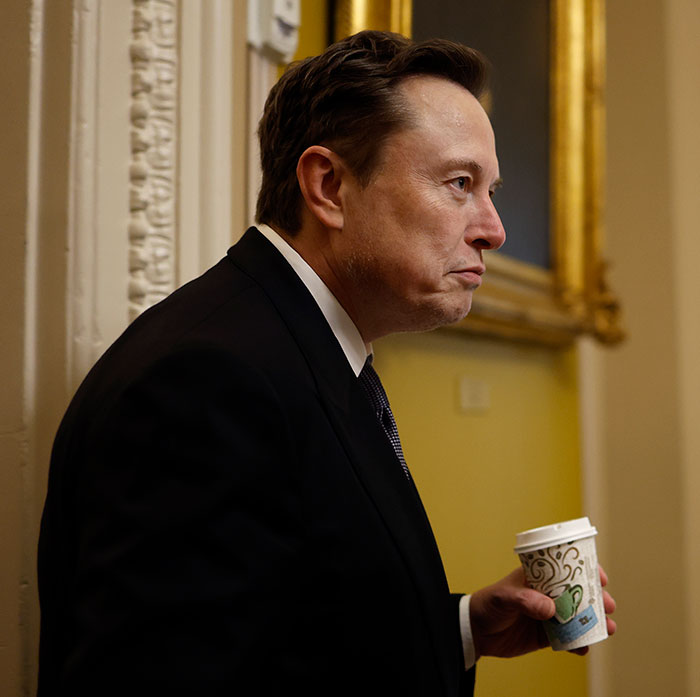
“It’s a completely new drug class,” Dr. Cecilia Low Wang, a UCHealth expert on endocrinology, diabetes and metabolism explained.
She added: “Instead of being a single-receptor agonist, which semaglutide (the drug in Ozempic and Wegovy) is, Mounjaro activates two receptors at the same time.
“That’s why it’s called a ‘dual-agonist.’”
Elon newly revealed his treatment on social media
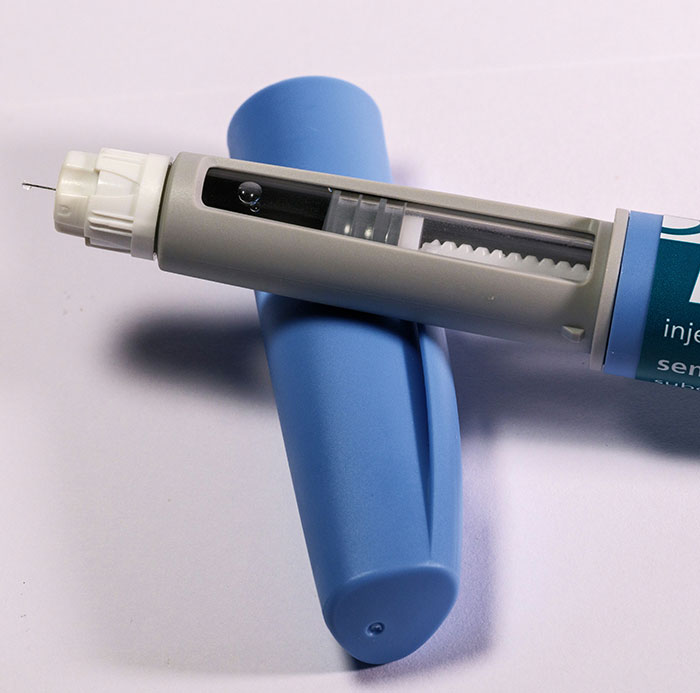
This double agonist approach seems to cause people who use Mounjaro injections to lose even more weight than those who use a single-agonist medication, according to UCHealth Today.
Elon’s slimmer figure left many fans divided, as an X user commented: “Even the belt is almost falling off there, Santa.”
A person wrote: “Give me the chunky Santa back. He’s more to love.”

Someone else penned: “Ozempic Santa, that’s gold Elon. I love it. Thanks to Ozempic, Santa can now just slip down your chimney with no more help from his magic elves.”
“Lookin’ good, Santa!!” a netizen added.
An observer shared: “Santa’s waistband is the only thing not affected by inflation!”
Elon jokingly referred to himself as “Ozempic Santa” in a Santa suit

A separate individual chimed in: “Ha. He has all year to regain the weight.”
Elon said that he preferred Mounjaro to Ozempic because taking “high doses” of the latter drug made him “fart & burp like Barney from the Simpsons,” The New York Post reported on Thursday (December 26).
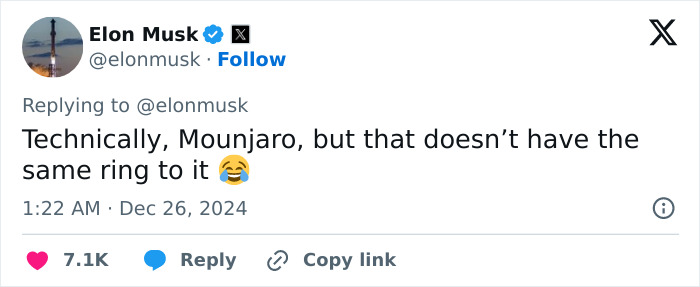
Ozempic is a weekly injection that helps lower blood sugar by helping the pancreas make more insulin, UC Davis Health explains.
It is not approved for weight loss, but some physicians prescribe it to be used for weight loss.
In recent years, Ozempic has become a hallmark of celebrity culture, as numerous high-profile figures have sparked controversy over dramatic weight loss, often facing accusations of relying on the drug to achieve their transformations.
Mounjaro is the newest diabetes drug that also triggers dramatic weight loss

Elon has previously vocalized his support for weight loss drugs. Earlier this month, he wrote on X: “Nothing would do more to improve the health, lifespan, and quality of life for Americans than making [GLP-1 drugs] super low cost to the public.
“Nothing else is even close.”
Some of the most prominent GLP-1 drugs, also known as drugs used for weight loss, include Ozempic, Wegovy, Mounjaro, and Zepbound, ABC News reported at the time.

In the US, weight-related health concerns are widespread, with nearly 1 in 3 adults (30.7%) classified as overweight, according to the National Institute of Diabetes and Digestive and Kidney Diseases.
Overweight rates are higher among men (34.1%) compared to women (27.5%), while more than 2 in 5 adults (42.4%) live with obesity, including severe obesity.
Severe obesity affects about 1 in 11 adults (9.2%), with women (11.5%) more likely to be severely obese than men (6.9%).
“He understands how the world works,” a reader commented










